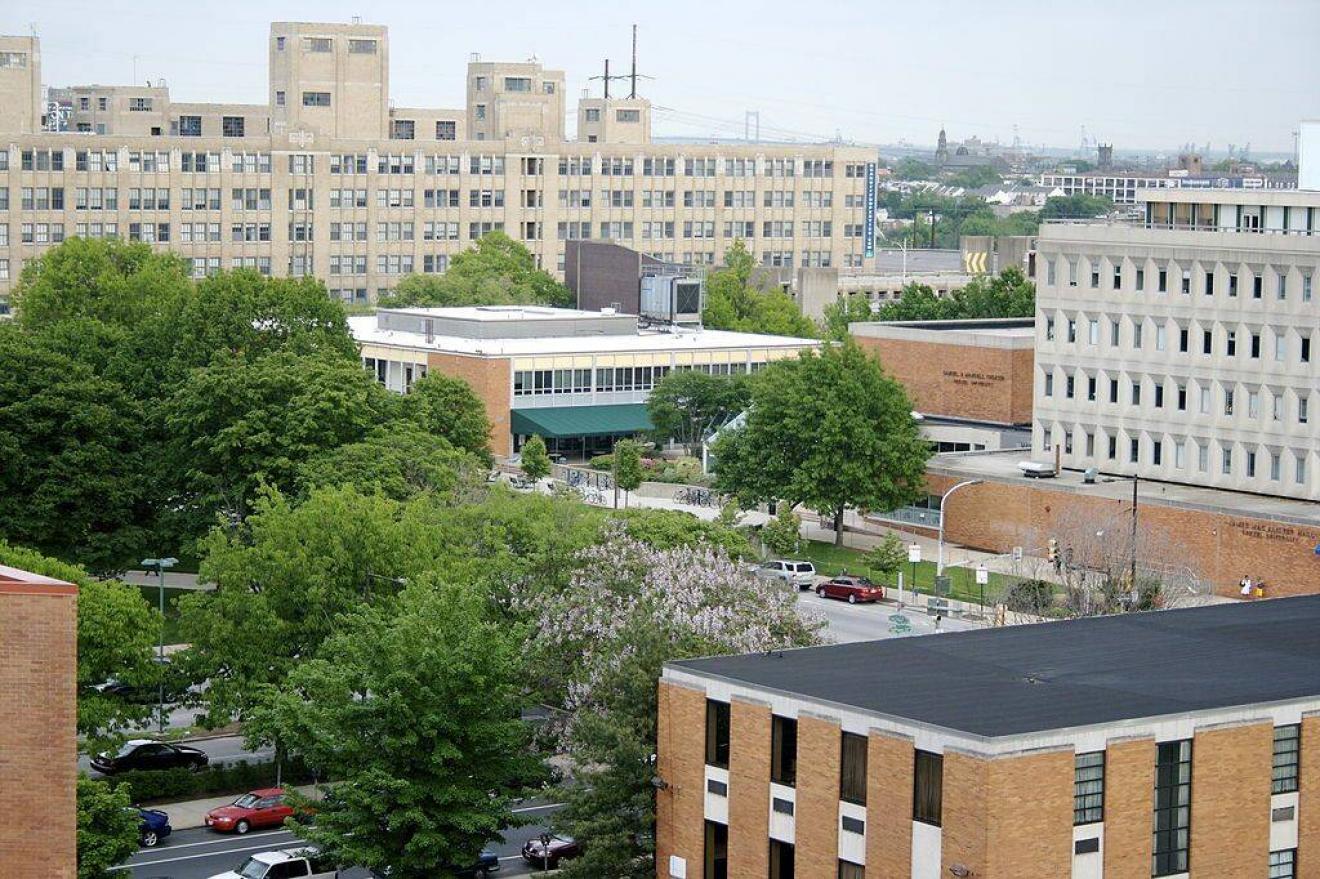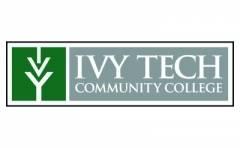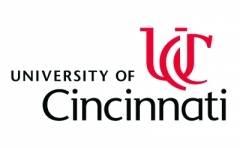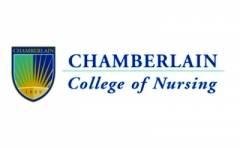Best Healthcare colleges in the U.S.
When it comes to solid employment opportunities, Healthcare is an extremely broad sector with an endless array of exciting job types available. From audiologists to dental hygienists, opticians, physical therapists, and dozens of other well-paying career options, Healthcare has virtually something for everyone.
The Bureau of Labor Statistics states that Healthcare occupation employment will grow 16% in the coming decade. That’s a very bright outlook, especially when compared to the 8% average growth for all other jobs combined.
Between the great salaries, strong prospects, and unique job duties, college students are scrambling to break into healthcare roles by earning their healthcare degrees! There are several intriguing degree types to consider, so let’s dive in and see what captures your interest!
Find online healthcare degree programs today »
Best Healthcare colleges in the U.S. for 2026
University of Phoenix-Arizona offers 58 Healthcare degree programs. It's a very large, private for-profit, four-year university in a large city. In 2023, 4,924 Healthcare students graduated with students earning 2,002 Bachelor's degrees, 1,653 Master's degrees, 1,209 Certificates, 36 Doctoral degrees, and 24 Associate's degrees.
As the “nation’s largest individual accredited statewide community college system,” Indiana’s Ivy Tech Community College makes education convenient and affordable for over 200,000 students a year. Its School of Health Sciences boasts a massive catalog of healthcare courses:
- Dental assisting
- Diagnostic medical sonography
- Paramedic science
- Kinesiology and exercise science
- Radiation therapy
- Practical nursing, and many more areas of study
Certificates and associate degree programs are fast, practical, and frequently available online so students can prepare for their new careers from home!

Founded in 1891 in Philadelphia, Drexel University is a “world-class comprehensive R1 research institution and a global leader in experiential educations.” The school is known for its cooperative education program which allows students to test different career options while they learn. Drexel is also recognized for its numerous online offerings, which include programs in the following:
- Autism studies
- Behavioral health
- Biomedical technology
- Clinical research
- Drug development
- Health administration
- Integrative/holistic medicine
- Medicine
- Nursing
- Psychology
- Psychiatry
- Public health
From certificates to doctoral degrees, Drexel is a “pioneer in replicating the campus classroom experience and offering it to students across the globe.”
New Jersey’s famed Rutgers University - New Brunswick is the oldest of the university’s regional campuses. Established in 1766, it features several undergraduate, healthcare-related programs on-campus and online, such as bachelor’s degrees in health administration, nursing, pharmacy, physician assistant, pre-dentistry, pre-medicine, and public health.
There are also many graduate programs, including a Master of Health Administration, Executive MHA, Master of Health Communication and Information, and several dual degree options. Rutgers Biomedical and Health Sciences serves the “next generation of health care professionals while advancing vital research and clinical care.”

Imagine internships at the CDC, USAID, the D.C. Department of Health, and the Medicare Rights Center. Such advantages attract students from across the U.S. and more than 40 countries to attend the Milken Institute School of Public Health at the George Washington University, the only school of public health in the nation’s capital. Passionate researchers, policymakers, and scholars teach the courses while often actively seeking solutions to critical health problems. Key areas of excellence include health and healthcare reform, HIV/AIDS and other infectious diseases, and developing healthy societies across the lifespan. Undergraduates can earn a bachelor’s degree in public health or exercise science. Graduate studies are offered through six departments: Environmental and Occupational Health, Epidemiology and Biostatistics, Exercise and Nutrition Sciences, Prevention and Community Health, Health Policy and Management, and Global Health. Among joint-degree options is the world’s first MPH/Physician’s Assistant program.
GWU is also home to the School of Medicine & Health Sciences and the School of Nursing, which offer their own healthcare programs featuring internship opportunities at the CDC, USAID, the Department of Health. Students can also take advantage of GWU’s 100+ online programs!
Two concerns reign supreme at the University of Pittsburgh School of Medicine. The first is turning out physicians ready to offer top-notch care to patients. (The school regularly receives especially high rankings in the areas of drug and alcohol abuse, geriatrics, pediatrics, women’s health, and primary care). The second is educating investigators whose research will impact the future of medical science. (The campus building where Pitt faculty member Jonas Salk conducted his research on the first polio vaccine is now an historic landmark.) The University of Pittsburgh Medical Center Hospitals and Facilities aids both endeavors by serving as a training and research center for students. Not to mention, it happens to receive one of the highest amounts of funding from the National Institutes of Health. In addition to studies leading to an M.D., the School of Medicine offers masters and doctoral programs through its Graduate Studies division. Select undergrads can contribute to cutting-edge research at Pitt through intensive 10-week summer programs in areas such as cell biology and immunology.
With 2,400+ full-time faculty and 1,100+ students, the school has an incredible teacher-to-student ratio. Pitt is home to a major assortment of healthcare education options which include residencies, fellowships, and post-doc work conducted in cutting edge centers and institutes. There are also several exciting online programs!
Located in Athens, Ohio University features a stunning array of Healthcare-related degree programs offered through the College of Health Sciences and Professions, the Heritage College of Osteopathic Medicine, and the Graduate College. From certificates such as the Healthcare Leadership Certificate to a BS in Integrated Healthcare Studies and numerous doctoral programs, OHIO has options for all academic levels. The school also happens to be the “#1 College for Online Education” in the state!
University of Cincinnati-Main Campus offers 187 Healthcare degree programs. It's a very large, public, four-year university in a large city. In 2023, 3,535 Healthcare students graduated with students earning 1,268 Master's degrees, 1,131 Bachelor's degrees, 625 Certificates, 510 Doctoral degrees, and 1 Associate's degree.
Located in Phoenix, Arizona, Grand Canyon University is a private Christian school with ~20,000 on-campus students and 70,000 enrolled in online classes. GCU’s academic offerings cover a wide range of Healthcare areas of interest, including psychology, counseling, nursing, medical studies and sciences, and many other options. The university is accredited by the Higher Learning Commission, while individual programs have programmatic accreditation (such as the College of Nursing and Health Care Professions, accredited by the Commission on Collegiate Nursing Education). GCU makes learning easier than ever with convenient online and evening courses, hybrid programs, and special services for military and international students.
Chamberlain University-Illinois offers 46 Healthcare degree programs. It's a very large, private for-profit, four-year university in a large suburb. In 2023, 11,082 Healthcare students graduated with students earning 5,665 Bachelor's degrees, 4,727 Master's degrees, 482 Doctoral degrees, and 208 Certificates.
Find local colleges with Healthcare majors in the U.S.
Top schools offering Healthcare degrees in the U.S.
What is Healthcare?
The American Medical Association tells us that healthcare is “a fundamental human good, because it affects our opportunity to pursue life goals, reduces our pain and suffering, helps prevent premature loss of life, and provides information needed to plan for our lives.”
Regarding healthcare degrees, keep in mind that “Healthcare” is not a major. In other words, students won’t earn a degree with simply the word “Healthcare” written on it. Instead, think of Healthcare as an umbrella term that encompasses a spectrum of medical specialties.
Each of these different jobs have their own unique academic requirements, along with applicable training, licensure, or certifications. Some jobs obviously have more academic requirements than others.
For instance, a paramedic may enter their profession with a paramedic/emergency medical service associate degree plus CPR training. In comparison, to become a surgeon, a student would need to complete a Medical Doctor or Doctor of Osteopathic Medicine degree along with a lengthy residency.
Healthcare Degree Overview
Why a degree in healthcare?
You’ve always loved helping people and found an interest in those sluggish science classes. Whether you prefer to diagnose, treat, or prevent, it’s obvious healthcare is the place for you.
What healthcare degree options exist?
In healthcare, you need others, and they definitely need you. The healthcare industry added 271,000 new positions last year, and the upward trend is continuing in 2014. Job boards have already seen a 16% increase in healthcare job postings compared to this time last year.
There's a shortage of healthcare professionals worldwide. With an overall aging population and the increasing complexity of the healthcare system, the time has never been better to be a trained and qualified healthcare professional. If it’s time to start your healthcare career, up, up and away!
There are dozens of different healthcare degree types, such as:
- Community health and preventative medicine
- Dentistry
- Health services administration
- Integrative physiology
- Medical billing and coding
- Medical records administration
- Physical therapy
- Physician assistant studies
- Registered nursing
Aside from the subject matter of the degree, there are also different degree levels (which apply to all subjects, not just Healthcare). The main degree levels are associate, bachelor’s, master’s, and doctorate. The number of credits for each depends on the type of system the college or university uses. Most rely on the semester calendar system featuring two semesters, but some prefer a quarter system.
Certificate in Healthcare
In addition to healthcare degrees, there are also numerous certificate options for Healthcare students. These may require only a handful of courses to complete and are often done entirely online. Certificates can be used to augment existing skills or add new ones to bolster your credentials and qualify you for roles with extra responsibilities — plus the extra pay to accompany them!
Associate Degree in Healthcare
Generally a two-year, 60-credit hour degree, an associate degree in the field of healthcare can be completed either at a community college or university, including online programs. An associate in a healthcare field is a great way to qualify for entry-level positions like health information technician or healthcare administrative assistant.
Many employees work their way up from entry jobs without taking extra courses, but often an advanced degree is needed. Entry-level work experience is valuable for those who want to further their education with a bachelor’s or graduate degree later. That said, an associate isn’t necessary if you know you’re planning to complete a bachelor’s or higher.
Bachelor's Degree in Healthcare
Typically a four-year degree for full-time students, this degree type requires an average of 120 semester credits. It can be done as a bachelor of arts or bachelor of science, depending on the nature of your healthcare studies.
Actually, many students who intend to complete a master’s or beyond may not major in a Healthcare-related field during their undergraduate studies. For instance, a student might earn a bachelor’s in Political Science then decide to go for a Master’s in Health Administration. In such cases, they must complete sufficient prerequisite coursework before (or concurrent to) being accepted into a graduate-level program.
Due to the rising costs of college, many students work jobs while completing their bachelor’s, and thus look for flexible online or hybrid program options.
Master's Degree in Healthcare
A master’s in a healthcare field of study may take one or two years, if going full-time and depending on course load and program requirements.
Several schools offer dual degree routes, allowing students to work towards their bachelor’s and master’s at the same time. This can save time and a lot of money! Completing a dual degree can also get you prepared for a job sooner — meaning you’ll be earning a nice income sooner.
In addition to dual degree options, online programs are increasingly popular. In fact, some of the hottest online master’s programs today are in healthcare, such as a Master’s in Healthcare Administration, Master of Science in Nurse Anesthesia, and Master of Science in Physician Assistant Studies.
Doctoral Degree in Healthcare
At the top of the academic echelon are doctoral degrees. Going the doctor route can take many forms…and many years, depending on the area of study and program you enroll in. Physicians and surgeons will have to complete a Medical Doctor (M.D.) or a Doctor of Osteopathic Medicine (D.O.) degree. However, those who want managerial roles may opt for a Doctorate or PhD in Healthcare Administration or a related Healthcare management degree.
Doctoral degrees can take two to seven years, but actual job requirements generally extend beyond completion of academic classes. There may be internships, residencies, or fellowships that can take three to nine years.
Earning a doctorate is a long, arduous journey with a treasure of rewards waiting at the end. Students with ample work experience and a healthcare-related doctorate qualify for very lucrative positions. For instance, BLS cites the national median wage for Anesthesiologists is $271,440. Salary.com reports an even higher median of $405,000, with the top 10% bringing in over $500,000 a year!
Certification and Licensure in Healthcare
With dozens (if not hundreds) of career options falling under the blanket term of “Healthcare,” and multiple certifications available for each career, it’s a bit impractical to break down all the thousands of certs available. We do, however, stress the importance of finding certificates that apply to the job (or promotion) you’re interested in.
There’s no one-size-fits-all approach to certifications. In some cases, a cert may be a standalone credential that qualifies you for a particular role. In other cases, certification supplements your college degree and shows you’ve gone above and beyond to learn additional knowledge and skills. Sometimes, Healthcare certifications are necessary to obtain a state or national license, as required for the job you want.
Certifications may be entry-level, advanced, or specialized. For example, a Healthcare Social Worker may want to finish an entry-level National Certified Counselor course from the National Board for Certified Counselors. Later, they might wish to complete the advanced Level II of that certification or opt for a specialized credential such as Certified Alzheimer's Educator.
Healthcare certifications vary in length but are designed to be shorter (and certainly more affordable) than a full degree program. It is common for graduates to begin their careers and take cert programs after work, via online or nighttime classes.
A few of the most popular Healthcare certifications are as follows:
- Certified Clinical Medical Assistant
- Certified Coding Specialist Physician-Based
- Certified EKG Technician
- Certified Medical Assistant
- Certified Nursing Assistant
- Certified Patient Care Technician
- Certified Pharmacy Technician
- Certified Phlebotomy Technician
Figuring out licensure for healthcare professionals is also complicated because, again, there are so many career routes. Many but not all jobs will require licensure. Frequently, it boils down to state preference, meaning some states require licensure for a job, while others don’t (or they do, but have different requirements to obtain said licensure).
As a general rule of thumb, the likelihood of needing a license for a job may correlate with the impact that role has on delivering patient care. For instance, a medical coder usually doesn’t need a license, whereas Physical Therapists are more “hands on” and do need a license to practice.
What Can I Do with a Degree in Healthcare?
There are hundreds of career choices for those with a degree in a Healthcare field. The possibilities are nearly limitless, because Healthcare emcompasses so many types of jobs and subspecialties.
Some students may opt to start working entry-level jobs after completing an associate degree, while others may wait to earn their bachelor’s. Many, but not all, students start working prior to beginning a graduate degree in order to gain much-needed work experience. A graduate degree (i.e. a master’s or doctorate) and practical experience are both required to land advanced healthcare positions.
The University of Colorado Boulder lists seven categories of health careers. Under those broad categories, here are a few examples of Healthcare jobs with different degree level requirements:
- Medical Billing and Coding Specialist
- Performs crucial administrative support duties for healthcare facilities related to patient billing, insurance, and treatment records. May qualify to start with an associate degree.
- Median salary: $47,200, if uncertified; $60,097, if certified.
- Physical Therapy Aide
- Assists patients who are in physical therapy with strength and range of motion exercises. May qualify to start with a bachelor’s degree.
- Median salary: $16 an hour; may go higher with certifications and experience.
- Nursing Home Administrator
- Responsible for taking care of the business and organizational aspects of nursing homes. May qualify to start with a Master of Health Administration (MHA) or related Healthcare administration degree.
- Median salary: $121,835. Top 10% salary: $148,084 and up.
- Dentist
- Works on patients’ teeth to fill cavities and repair damage, as well as administering anesthetics and prescribing antibiotics, as needed. Requires a doctoral degree.
- Median salary: $164,010. Top 10% salary: $208,000 and up.
Earning an Online Healthcare Degree
There’s no doubt that online healthcare degrees are in high demand by students and employers alike.
Students need the flexibility to attend classes when they’re free from work and family obligations. Employers, meanwhile, can also benefit from their workers completing online programs.
Especially in the realm of healthcare during the era of the COVID pandemic, many organizations are in dire need of new employees to fill openings. They are sometimes willing to onboard new workers before they’ve finished academic training. Hiring students is tricker when they’re attending on-campus classes with strict schedules, whereas it is easier to hire online students who can shift things around to meet academic and work demands.
Savvy schools have paid attention to these trends and adjusted accordingly. The top schools in the nation offer fully accredited online programs taught by esteemed faculty, featuring the same high quality curricula as in-person programs. The format for delivering lectures, assignments, and other content may be virtual, but nearly everything else is the same.
Online Healthcare degrees remove barriers to access, thus empowering busy students to attend the colleges of their choice. Online programs let you participate in programs you’re interested in so you can graduate with a degree that will qualify you for jobs with current critical shortages. From an online Associate in Medical Laboratory Technology to an online Doctor of Health Administration, every level of degree has online options offered by accredited, well-established colleges and universities.
By the same token, all majors and areas of specialization are represented online or via hybrid option, at least partially. There will always be some skills that must be learned live, via workshops, internships, residency programs, etc. But, when feasible, online healthcare programs minimize these in-person experiences to ensure the utmost flexibility for students without compromising the quality of training.
Sample path from associate to doctorate:
For those planning to work towards a doctorate, one sample plan of action might be:
➢ Associate degree — Online
➢ Bachelor’s — On-campus/In-person
➢ Master’s — Hybrid
➢ Doctorate — Online
Reminder, whichever path you choose, make certain your online degree in Healthcare is accredited!
Healthcare Career and Salary Overview
Health Care Career Paths
It seems like there are as many career choices in health care as there are illnesses to treat, injuries to heal, and patients to care for. Here, we're going to look at a few of the major areas of health care, and some popular careers in those areas. Nursing careers are among the most rapidly-expanding fields in the country. There are countless hospitals and clinics that are struggling to find enough qualified nurses to staff their overworked departments. Nurses care for patients in a variety of ways and settings depending on their training and education. Physicians are the primary care givers in most healthcare settings. They can serve as general practitioners, helping patients with a variety of needs, or they can specialize in a specific area of care. For example, physicians can specialize in obstetrics and gynecology, anesthesia, family practice, psychiatry, various forms of surgery, or any number of other fields. Medical administration is a crucial, and often overlooked, aspect of healthcare industry. Medical billers and coders keep track of the overwhelming amount of information that goes between doctors' offices, hospitals, clinics, and other healthcare centers about patients, treatments, and everything else that goes into treatment. Medical assistants perform the vital administrative and clinical duties that keep those offices running, and running smoothly. Their duties can vary from office to office, but will usually include filing, tracking paperwork, and often customer relations (booking appointments, checking patients in, etc). Medical assistants should not be confused with physician assistants, who are medically trained and actually diagnose and treat patients. There are almost innumerable other career tracks that are involved in the healthcare field. For example, pharmacists fill prescriptions for patients based on doctors' recommendations, and have extensive training in drug interactions and reactions. Radiologic technicians are the men and women who perform diagnostic imaging like x-rays, magnetic resonance imaging (MRIs), and other forms of medical imaging in order to help doctors make diagnoses. And health care managers oversee it all, making sure that departments run smoothly, patients are cared for, and bills are paid.
Salaries for Health Care Careers
Most registered nurses earn between $51,000 and $76,000 annually, with most earning around $62,000. Advanced practice nurses and those with advanced training can earn substantially more; for example a survey by the journal ADVANCE for Nurse Practitioners found that the annual salary for a nurse practitioner (a kind of advanced practice nurse) was around $81,000. Physicians are among the highest-earning professionals in the country. Median income for primary care physicians was around $186,000. Physicians practicing in medical specialties earned a median income of over $339,000. Generally speaking, self-employed physicians (those who own or co-own their own medical practice) earn slightly higher income than those on the salary of hospitals or other large practices. Medical administrative salaries will vary greatly depending on the experience of the worker, the setting of the position, and the type of work being done. Generally speaking, however, medical records and information technicians earn a median income of around $30,000 annually, with most earning between $24,000 and $39,000. Those working for the federal government earned a higher median income of $42,000, while those working in private physician offices earned the least, at around $26,000. Likewise, medical assistants earn a median salary of $28,000, with most earning between $23,000 and $33,000. Again, those working for the government earned the highest average salaries, those working for private practices tended to earn less - though the difference is much less for medical assistants. Pharmacists earn very substantial wages, with the median income falling at $106,000, and most earning between $92,000 and $121,000. The highest 10 percent earned more than $131,000 annually. Radiologic technicians earn a median salary around $52,000, with most expecting to earn between $42,000 and $63,000.
Education for Health Care Careers
There are three paths to becoming a registered nurse: an associate's degree in nursing (ADN), a bachelor's of science in nursing (BSN), and a diploma program lasting three years. Those considering pursuing nursing as a lifelong career should weigh their options, as those wishing to become advanced practice nurses will require a master's degree. Additionally, all states have licensing requirements for both registered and advanced practice nurses. Just as physicians have extremely high earning potential, they also have among the most demanding educational requirements for any profession. Physicians require an undergraduate degree, a medical school degree (often ending with a doctorate of medicine, or MD), and between three to eight years of residency depending on their specialty. These requirements are universal for all physicians, general practitioners and specialists alike, though the exact amount of time needed to complete medical school and residencies may vary depending on the specialty. Most medical health billers, coders, and other information technicians hold associate's degrees or bachelor's degrees. Medical assistants are sometimes trained on the job depending on their duties, but many hold one or two year degrees or have completed diploma or certificate programs at technical and vocational schools. Pharmacists are required to earn a Doctor of Pharmacy (Pharm.D) degree, as well as pass multiple examinations in order to gain licensure. Pharm.D. degrees generally take about the same amount of time as medical doctorate, four years. Radiologic technicians are required to have formal training in radiography in the form of a certificate, associate's, or bachelor's degree, with an associate's degree being the most common path to employment. Each state has their own licensing requirements for radiologic technicians, be sure to check with the licensing body in the state you wish to work.
Health Care Career Outlook
As noted before, health care careers are among the fastest growing opportunities in the nation - nearly all occupations are expanding rapidly. Nurses are among the most in-demand position in the country right now. The BLS estimates the growth of the nursing profession to be around 22 percent, nearly double the national average, but puts job prospects even better, as aging RNs will be retiring and there is currently a lack of young nurses to replace them. Likewise, advanced practice nurses are in high demand, particularly in underserved areas like urban centers and rural areas. Physician employment is expected to grow at about the same rate as nursing, and job prospects are similarly rosy. The BLS points out that with the increasing age of the general population, doctors in specialties that afflict the elderly will find their prospects are even better. Medical records technicians are expected to see their employment opportunities grow by nearly double the national average, while medical assistants will see their employment grow by well over 30 percent - for the same reasons as doctors and nurses. Those with formal training and certificates will find excellent job prospects in the coming years. Openings for pharmacists are expected to grow by about 18 percent over the coming years, with job prospects, again, very rosy. As there are limited Pharm.D. programs in the country, the school system is having a hard time educating enough pharmacists to meet national demand. Radiologic technicians will experience similar growth in their industry, and should have excellent prospects awaiting them at the completion of their schooling. In short, health care career opportunities aren't going anywhere. And while the industry may not always grow as fast as it's expected to in the immediate future, as long as our population is expanding, there will always be an increased need for health care professionals.
Healthcare FAQ
What do healthcare workers do?
Healthcare is a broad industry containing many types of careers, all with different academic requirements and job responsibilities. Generally speaking, healthcare workers support patient health, either directly or indirectly.
What are examples of healthcare careers?
Healthcare careers broadly fall into these categories:
- Diagnosing/treating (such as dentists and physicians)
- Allied/associated fields (nurses, pharmacists)
- Rehabilitating (physical therapists)
- Assisting (aides, technicians)
- Educational (health educators)
- Administrative (nursing home directors, medical secretaries)
- Affiliated (biomedical engineers, social workers, athletic trainers)
Is a career in healthcare worth it?
Yes! Healthcare jobs require plenty of study to qualify for the best opportunities, but they rank highly on job satisfaction scales, have a strong growth outlook, and great salary potential!
What are the different degrees I can get in healthcare?
If you’re looking to make an impact on our nation’s health, start with a bachelor’s degree. A bachelor’s degree will be your key into entry-level and mid-level positions in healthcare. This degree requires around 120 hours of coursework. For example, you can pursue an administrative-based healthcare degree—think healthcare management, public health, biotechnology, or health information technology. Do you want to work one on one with patients? For careers focused on direct patient care, consider nursing, nutrition science, physician assistant studies, medical imaging, radiation therapy, recreation therapy, or speech-language pathology. If you like the sound of a laboratory-based position, explore programs like clinical laboratory science, microbiology, toxicology, or biomedical technology.
Depending on what you study, a master’s degree can require 30 credits or more beyond the bachelor’s level. You can pursue a graduate education in any of the bachelor’s program options above to enhance your knowledge and career opportunities in those areas. Or dive into a specialty. A master’s degree in nurse anesthesia or occupational therapy for example will give you specified knowledge that prepares you for a niche career. Other specialties include physical therapy, kinesiology, neurobiology, health policy, pharmaceutical sciences, gerontology, pathology, and respiratory care. Willing to dedicate several years to training beyond the bachelor’s level? You might be interested in a professional degree to become a doctor of medicine, pharmacy, audiology, dentistry, chiropractic care, ophthalmology, or veterinary medicine.
What are some of the skills and experiences I will gain through healthcare?
As a student in any healthcare program you will need to memorize and get comfortable using medical terminology related to your area of study. Expect to take science courses if you want to work in a lab or with patients. Regardless of your program, you will learn to communicate with patients, families, administrators, and other healthcare providers. You’ll also examine healthcare laws such as the Health Insurance Portability and Accountability Act (HIPAA). Healthcare professionals are required to practice in accordance with federal and state laws to protect patients’ health and privacy. Students enrolled in clinical-based programs learn to assess patients’ mental and physical needs, assist with or provide treatments, and follow care plans. Meanwhile, future administrators learn to manage office staff, electronic health records, budgets, and programs in hospitals and other healthcare facilities. Most academic programs require students to complete practicums or internships in hospitals or clinics. That’s right, hands on experience. Through this fieldwork students will evaluate patients and create care plans under supervision within the bounds of what students are allowed to do by law.
What are healthcare programs seeking in their applicants?
If you’re a math and science lover, you’re already on the right track. Admissions committees will look at your academic transcript to see that you have successfully completed the required math and science courses in high school—with preferably a B or higher—so they know you can handle the course content. But math and science skills aren’t all you need to be a competitive applicant. Admissions committees seek well-rounded students. They like to see in your application that you have been actively involved outside of the classroom. It’s never too late to volunteer at your local hospital or clinic! Or consider planning events with a student club like Relay for Life, or interning in a health-related role.
Should I study healthcare online or on a campus?
Do you already work in the healthcare field but need a degree to move up in your career? An online program might be a great option. With an online program you can add to your credentials without completely disrupting your schedule. But if you have some flexibility you will truly benefit from an on-campus program. There you can apply classroom learning in facilities like clinical simulation centers and anatomy labs. Professors and classmates will give you valuable feedback as you practice. You’ll develop deeper relationships with professors and advisors, some of which may work directly in healthcare. They can help you pinpoint your healthcare niche and locate experiential opportunities. These resources will prepare you to transition from studying healthcare to working in the field.
What are the cutting-edge careers in this industry?
If you want to get into a unique specialty, consider genetic counseling. Genetic counselors help patients determine if their families will be at risk of specific hereditary conditions by testing DNA. Between 2014 and 2024, there will be a 29% increase in the employment of genetic counselors, according to the Bureau of Labor Statistics. Further, look at O*Net OnLine’s list of new and emerging careers with a bright outlook and you’ll see that technology-based healthcare careers are trending. Bioinformatics scientist and informatics nurse specialist are among the emerging career options. In these positions you would design computer systems for healthcare professionals who need to track and analyze patient or biological information. Further, according to CareerBuilder, some of the most in-demand jobs of 2016 are expected to be registered nurse, occupational therapist, surgical technologist, speech-language pathologist, pharmacist, and physical therapist. If you’re looking into healthcare you have no shortage of desirable career options.
How do you work your way to the top in the healthcare industry?
Competitive applicants in the healthcare job market boast practical, hands-on experience. In fact, academic programs often require you to complete clinical experiences, internships and practicums where you observe and perform basic duties related to your specialty area under supervision. This fieldwork serves as a networking opportunity too. While you gain experience for your resume, you gain contacts in your future field. For that competitive edge, dive into research at a research assistantship at college or volunteer for a clinic, health non-profit, hospital, or hospice. You can even give professional conference presentations. Just remember Amy Cuddy’s power pose when you’re on stage.
Are there scholarships or grants available to people looking to study healthcare?
Absolutely! Land a scholarship from National Health Services Corps or Nurse Corps and they will cover your tuition and fees when you commit to fulfilling their respective service obligations. Apply for a Tylenol Future Care Scholarship and you could receive an award of up to $10,000. You can even look into state-specific scholarships related to your profession, like the Florida Public Health Foundation scholarship for prospective masters in public health students. Spend time searching for scholarship information on the websites of state health departments, health nonprofit organizations, corporations, national and regional professional associations, and universities. With persistence and follow-through you’ll find many ways to fund your healthcare education.
*HealthECareers (http://www.healthecareers.com/article/healthcare-job-outlook-most-new-jobs-projected/174918)
List of all Healthcare colleges in the U.S.
| School | Average Tuition | Student Teacher Ratio | Enrolled Students | |
|---|---|---|---|---|

|
University of Phoenix-Arizona Phoenix, AZ | 1,176 : 1 | 101,150 | |

|
Ivy Tech Community College Indianapolis, IN | 90 : 1 | 100,077 | |

|
Drexel University Philadelphia, PA | 21 : 1 | 21,703 | |

|
Rutgers University-New Brunswick New Brunswick, NJ | 22 : 1 | 50,617 | |

|
George Washington University Washington, DC | 23 : 1 | 25,568 | |









